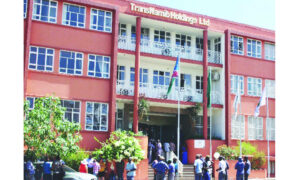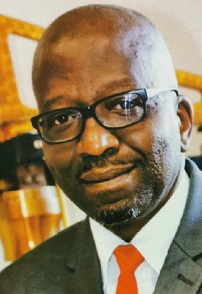THE High Court case in which Affirmative Repositioning movement leader Job Amupanda is trying to have Namibia’s veterinary cordon fence (redline) declared unconstitutional has become entangled in arguments about legal costs.
In an application heard by judge Shafimana Ueitele in the Windhoek High Court yesterday, the Meat Board of Namibia is asking the court to direct that Amupanda should pay the board’s legal costs that have been wasted since Amupanda filed a constitutional challenge about the redline in May 2021.
The case filed by Amupanda has been amended in the meantime, and Amupanda has also filed an application in which he is asking the court to protect him against an order directing him to pay the legal costs of his opponents in the case if his legal action turns out to be unsuccessful.
Amupanda’s application to be protected against a costs order was not argued as initially planned yesterday, as more parties with an interest in the existence or removal of the redline may still join the case.
This is after Ueitele ordered last month that potential interested parties should be given time until the end of November to indicate if they intend to take part in the legal proceedings about the fence now pending in court.
In the current incarnation of his lawsuit, Amupanda is asking the court to declare that the redline, which is meant to prevent the spread of animal diseases from Namibia’s northern communal farming areas to foot-and-mouth disease-free areas south of the fence, was not erected in terms of any law and is unconstitutional.
Amupanda also wants the court to direct the government and the minister of agriculture, water and land reform to remove the fence.
In addition to that, he is asking the court to order that agriculture ministry officials may not confiscate red meat being transported from northern Namibia across the redline for private and own consumption, and to declare that a confiscation of meat from him on 17 May last year was unlawful and unconstitutional.
Amupanda initially cited only the government, the minister of agriculture, water and land reform, the attorney general, and a veterinary official who confiscated meat from him as defendants in his case.
The Meat Board of Namibia joined the case as an interested party in September last year.
The board’s chief executive officer, Paul Strydom, says in an affidavit filed with the court that Amupanda’s initial claim was defective, and that it was then amended and re-amended, resulting in wasted legal costs for the board that Amupanda should be required to pay.
After hearing arguments yesterday, Ueitele said he would deliver his ruling on the board’s application for its wasted legal costs to be paid by Amupanda by 2 December.
In his application for a costs protection order, Amupanda says the case he filed is a matter of high public importance, “underpinned by social justice”, and about issues that have never before been argued in the country’s courts.
However, he adds, he has been advised that the case is likely to take some time before it proceeds to a trial, and the legal costs in the matter are “likely to be astronomical and beyond my pockets”.
With the legal costs projected to amount to millions of Namibia dollars, “my meagre estate will be completely wiped out by the obligation to pay the substantial amount of costs anticipated” if he is not successful with his legal action and is ordered to pay the defendants’ costs, Amupanda says.
In response to Amupanda’s wish to be protected against a possible costs order, agriculture minister Calle Schlettwein says in an affidavit also filed at the court that Amupanda is self-servingly overstating the complexity of the case, while the facts of the matter are actually simple and not seriously in dispute.
Schlettwein charges that Amupanda “’attempts to abuse this court for political theatrics”, and that he launched his legal action against the redline to advance his and the Affirmative Repositioning’s political agenda.
The removal of the redline will result in Namibia losing its status as a country with a zone free of foot-and-mouth disease without practising vaccination, “with devastating consequences for the Namibian meat-producing industry, in particular, and the Namibian economy as a whole”, Schlettwein states.
Ueitele yesterday postponed the case to 6 December, for a further status hearing to take place.




